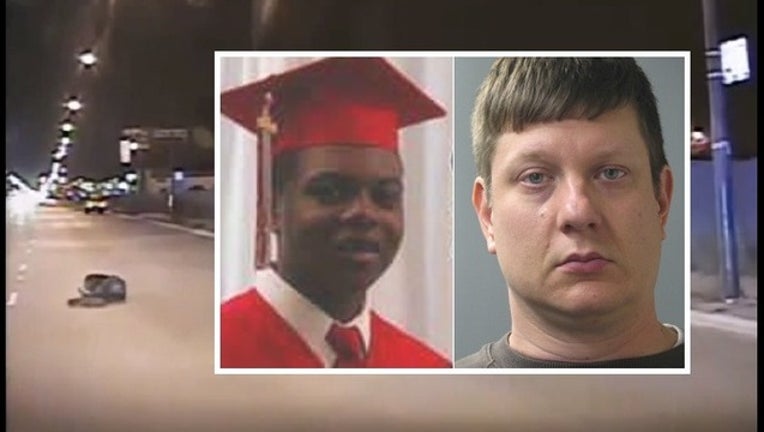Judge wants to hear from cops in charge at Laquan McDonald scene

SUN-TIMES MEDIA WIRE - The Chicago Police deputy chief who was in charge of the scene of the Laquan McDonald shooting, and the detective who led the initial investigation will testify in court later this month about statements they took from Officer Jason Van Dyke.
At a hearing Friday, Cook County Judge Vincent Gaughan said he wanted to hear from former Deputy Chief David McNaughton and Det. David March about their conversations with Van Dyke the night of the shooting, the Chicago Sun-Times is reporting.
At issue is whether his statements to the two officers the night of the fatal shooting can be used as special prosecutor Joseph McMahon builds his case against Van Dyke, who was charged with first-degree murder after pumping 16 shots into the 17-year-old McDonald.
While those statements were among the dozens of pages of reports released to the public by the Independent Police Review Authority more than a year ago, lawyers for Van Dyke have argued that they can’t be used as evidence to bring charges against him, or that prosecutors should even be allowed to review them.
Both McNaughton and March cleared Van Dyke of wrongdoing in the 2014 shooting, though a report last year by Inspector General Joseph Ferguson called for CPD to fire the two veteran officers, as well as nine others, for their roles in the investigation of McDonald’s killing.
McNaughton retired last year. March was put on desk duty after the IG’s report, and Van Dyke’s lawyer said Friday that he was no longer on the force. The two will be called to testify at a hearing on June 28, Gaughan said Friday.
Gaughan on Friday ruled that statements from five officers present at the shooting, as well as a report Van Dyke filled out himself immediately after the shooting, were fair game for McMahon. A final ruling on Van Dyke’s statements to March and McNaughton will come after the late June hearing.
Reading from a listing of facts to which both sides agreed, Assistant Special Prosecutor Joseph Cullen said March interviewed Van Dyke at the scene and later at Area Central, and that the detective said he never discussed whether Van Dyke could refuse to make the statement. March, however, believed Van Dyke was required to give a statement, and said in 30 police shootings he’d investigated, every officer involved had given a statement.
Not long after gunning down McDonald, Van Dyke also answered questions about the shooting in separate interviews with March and McNaughton.
A 40-year-old U.S. Supreme Court ruling states that statements made in internal investigations, where an officer is at risk of losing their job if they don’t talk, can’t be used as a basis for criminal charges.

